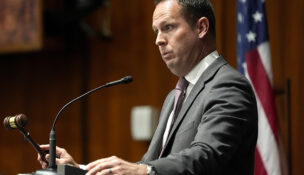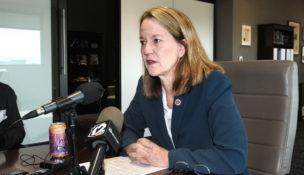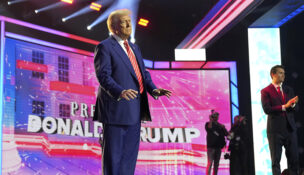Appeals Court reverses smoking ban on Phoenix cigar shop
Arizona Capitol Reports Staff//October 3, 2008//[read_meter]
Appeals Court reverses smoking ban on Phoenix cigar shop
Arizona Capitol Reports Staff//October 3, 2008//[read_meter]
The Arizona Court of Appeals delivered a blow against the regulatory powers of the Arizona Department of Health Services by declaring on Sept. 30 that a luxury Phoenix tobacco shop...
No tags for this post.

















